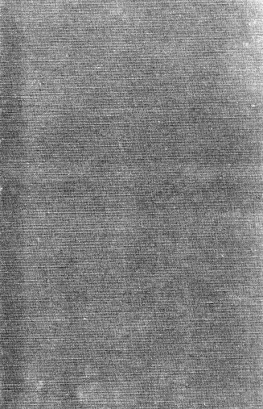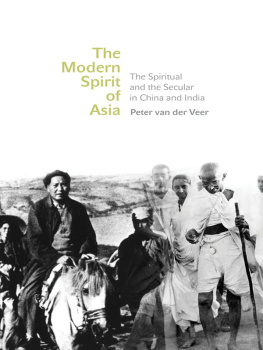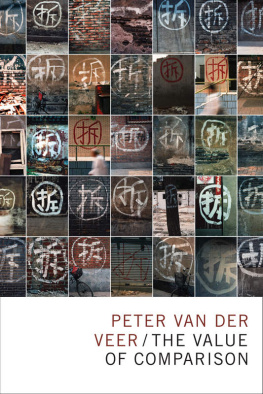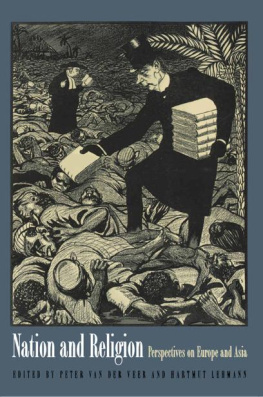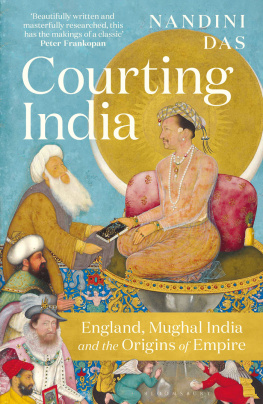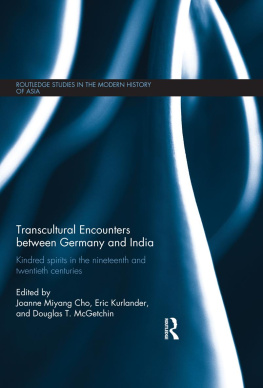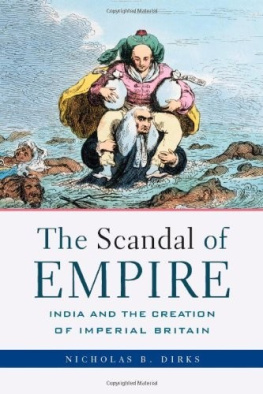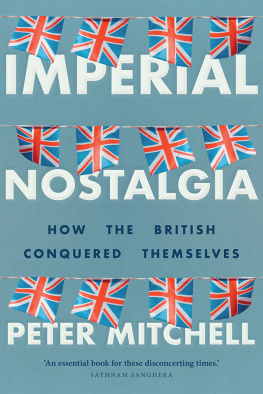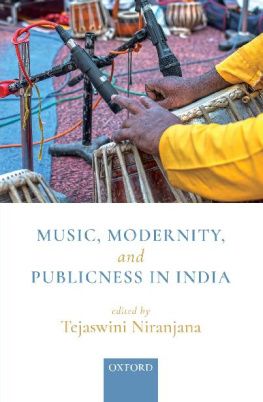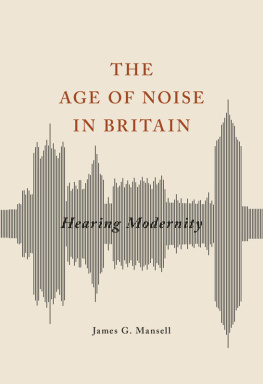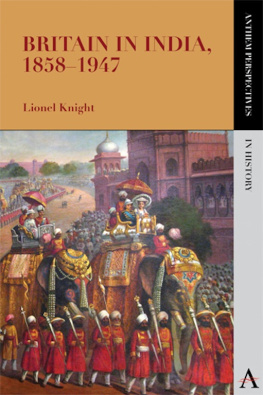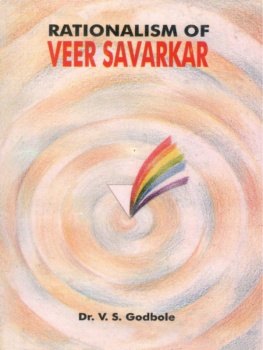Peter van der Veer - Imperial Encounters: Religion and Modernity in India and Britain
Here you can read online Peter van der Veer - Imperial Encounters: Religion and Modernity in India and Britain full text of the book (entire story) in english for free. Download pdf and epub, get meaning, cover and reviews about this ebook. year: 2009, genre: Religion. Description of the work, (preface) as well as reviews are available. Best literature library LitArk.com created for fans of good reading and offers a wide selection of genres:
Romance novel
Science fiction
Adventure
Detective
Science
History
Home and family
Prose
Art
Politics
Computer
Non-fiction
Religion
Business
Children
Humor
Choose a favorite category and find really read worthwhile books. Enjoy immersion in the world of imagination, feel the emotions of the characters or learn something new for yourself, make an fascinating discovery.
- Book:Imperial Encounters: Religion and Modernity in India and Britain
- Author:
- Genre:
- Year:2009
- Rating:4 / 5
- Favourites:Add to favourites
- Your mark:
- 80
- 1
- 2
- 3
- 4
- 5
Imperial Encounters: Religion and Modernity in India and Britain: summary, description and annotation
We offer to read an annotation, description, summary or preface (depends on what the author of the book "Imperial Encounters: Religion and Modernity in India and Britain" wrote himself). If you haven't found the necessary information about the book — write in the comments, we will try to find it.
Imperial Encounters: Religion and Modernity in India and Britain — read online for free the complete book (whole text) full work
Below is the text of the book, divided by pages. System saving the place of the last page read, allows you to conveniently read the book "Imperial Encounters: Religion and Modernity in India and Britain" online for free, without having to search again every time where you left off. Put a bookmark, and you can go to the page where you finished reading at any time.
Font size:
Interval:
Bookmark:



Peter van der Veer
FOR JACOBIEN, JAN ANNE, AND SJOERD


ix
CHAPTER ONE
CHAPTER Two
CHAPTER THREE
CHAPTER FOUR
CHAPTER FIVE
CHAPTER SIX

ONE OFTEN ENCOUNTERS the idea that India is a deeply religious, traditional society, whereas Britain is a deeply secular, modern society. My motivation in writing this book is to counter such stereotypes that are based on Orientalist assumptions about East and West. By writing a comparative study of the simultaneous development of nation and religion in India and Britain I offer a critique of secularization theories as well as theories of nationalism, and clear the ground for a better understanding of modernity.
This book works on a large canvas, in time (a century), in place (India and Britain), and in subjects (gender, race, sacred scripture, secularism, and spiritualism). Thus the challenge has been to write a coherent narrative. To go into a detailed interpretation of primary sources would simply have been impossible. My book is not an exercise in archival research or literary criticism in which the close reading of a primary text against a historical context provides new insights, but an exercise in historical sociology in which larger historical developments are sociologically interpreted and illustrated with examples of major issues, such as the sati debate, the age of consent controversy, the Mutiny, and so on. Historical protagonists, like Annie Besant, Vivekananda, or Gladstone play an important role in the story as exemplars of the broader trends that I want to lay bare. For any of these figures there is a huge body of scholarship available, based on their writings and other sources, but it frames them in the narrow context of national history and thus neglects exactly what I want to bring out.Writing thus would have been impossible without the support of the extraordinary group of scholars gathered in the Research Center on Religion and Society at the University of Amsterdam: Gerd Baumann, Birgit Meyer, Patricia Spyer, Peter van Rooden, and Peter Pels. I am especially indebted to the latter two for their criticism and advice. A conference on "The Morality of the Nation-State," held at the Center in 1996 and published in 1999 under the title Nation and Religion: Perspectives on Europe and Asia, provided a strong intellectual impetus for this book. The process of my research began in 1995-96 in the rarefied environment of the School of Social Sciences at the Institute for Advanced Studies in Princeton, New Jersey. I am grateful to Clifford Geertz for his invitation and to the Institute and the Mellon Foundation for its support. I am also grateful to Nicholas Dirks for inviting me to the University of Michigan's International Institute which provided me with a series of fascinating discussions about my work and with a Sawyer Fellowship to enable my stay. I have been extraordinarily lucky in having good friends and colleagues who have stimulated my work through the years. Arjun Appadurai, first in Philadelphia and later in Chicago, has, through his own early work on religion and power in India and later his pathbreaking work on the cultural dimensions of globalization, given me lots to think about regarding my own project. Nick Dirks, first in Ann Arbor and later in New York, has always inspired me by the subtlety of his conceptualization of history and power. Small wonder that both were students of the pioneer in this field, Bernard Cohn. Gauri Viswanathan has over the last couple of years been my most demanding critic and a great support through her own example and the seriousness of her work. Tom and Barbara Metcalf, Gyan Prakash, Chris Fuller, Daud Ali, Webb Keane, Arjun Appadurai, and Jackie Assayag invited me, respectively, to Berkeley, Davis, Princeton, London, Ann Arbor, Chicago, and Pondicherry to discuss my work. All these occasions have been very helpful. My greatest intellectual debt is to Talal Asad and Edward Said for reasons that will be clear to any reader of this book. Finally, I am grateful to Mary Murrell at Princeton University Press for supporting this project and to Rita Bernhard for her copyediting.


THE NINETEENTH CENTURY witnessed both the expansion of British power over the world and the creation of a national culture in Britain. These two processes are commonly understood to be either unconnected or only connected in insignificant ways. The nineteenth century is also the period in which a gradual colonization of India took place and an anticolonial nationalism emerged. While these two processes were obviously related, their interaction is often perceived as having left British culture untouched. The present book challenges these views. It examines issues of religion, race, gender, and language, all of which are foci of national identity, in the historical interaction of Britain and India. It is inspired by Edward Said's claim, in Culture and Imperialism, that the historical experience of empire is a common one among both the colonizers and the colonized.'
This book argues that (1) national culture in both India and Britain is developed in relation to a shared colonial experience; (2) notions of religion and secularity are crucial in imagining the modern nation both in India and Britain; and (3) these notions are developed in relation to gender, race, language, and science. I thus reject the common assumptionsometimes hidden, sometimes explicit-that the metropole is the center of cultural production, while the periphery only develops derivative, imitative culture. The book aims at problematizing oppositions between modern and traditional, secular and religious, progressive and reactionary, on which nationalist discourse depends and which the historiography of Britain and India adopts. It can only do so in an essayistic fashion by attempting to show that what is often assumed to be opposite is in fact deeply entangled, and that what is seen as unconnected is in fact the product of close encounters. The issues chosen for analysis are strategic ones, but they are by no means thought to be exhaustive. The approach combines historical anthropology and comparative religion. The book offers a reflection on the history of Britain and India informed by anthropological theories of the nation-state and religion. What it tries to show is that religion has been crucial in the formation of national identity not only in India but also in supposedly secular and modern Britain. It argues that the interpretive framework that is commonly used to approach modernity, religion, secularity, and nation has to be problematized by looking at colonial interactions.
Font size:
Interval:
Bookmark:
Similar books «Imperial Encounters: Religion and Modernity in India and Britain»
Look at similar books to Imperial Encounters: Religion and Modernity in India and Britain. We have selected literature similar in name and meaning in the hope of providing readers with more options to find new, interesting, not yet read works.
Discussion, reviews of the book Imperial Encounters: Religion and Modernity in India and Britain and just readers' own opinions. Leave your comments, write what you think about the work, its meaning or the main characters. Specify what exactly you liked and what you didn't like, and why you think so.

